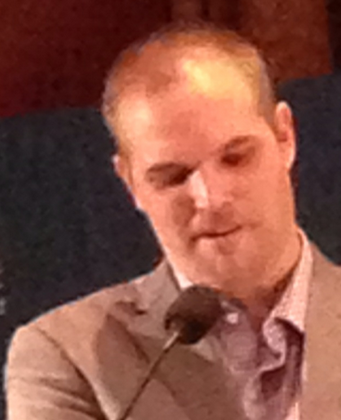
I love covering trials, which is one reason I've been a little sad since switching over to the Wall Street beat: Few of the bad guys in this world ever even get interviewed by the authorities, much less indicted, so trials are comically rare.
But we did have one last year, a big one, and though it was boring and jargon-laden enough on the surface that at least one juror fought sleep in its opening days, I thought it was fascinating. In a story about the Justice Department's Spring 2012 prosecution of a wide-raging municipal bond bid-rigging case, I called it the "first trial of the modern American mafia":
"Of course, you won't hear about the recent financial corruption case, United States of America v. Carollo, Goldberg and Grimm, called anything like that . . . But this just completed trial in downtown New York . . . allowed federal prosecutors to make public for the first time the astonishing inner workings of the reigning American crime syndicate, which now operates not out of Little Italy and Las Vegas, but out of Wall Street."
Dominick Carollo, Steven Goldberg and Peter Grimm were mid-level players who worked for GE Capital. They were involved in a wide-ranging scheme (one that also involved most of America's biggest banks, from Chase to BOA to Wachovia) to skim billions of dollars from America's cities and towns by rigging the auctions banks set up to help towns earn the highest returns on the management of municipal bond issues.
The case was over 10 years in the making and involved offenses that took place long before the 2008 crash. All three defendants were convicted in May 2012, with Goldberg ultimately getting four years and the other two getting three.
Now, they're all free. A New York federal judge last week ordered their convictions overturned in a quiet Thanksgiving-week transaction.
The GE Muni-riggers will now join such luminaries as the Gen Re defendants (executives from an insurance company who were convicted in 2008 of helping AIG conduct a fraudulent accounting transaction) and the KPMG defendants (executives of the U.S. arm of the Dutch accounting giant who were convicted in the 2000s of selling illegal tax shelters) in the ranks of Wall Street line-crossers who improbably made it all the way to guilty verdicts in criminal cases, only to be freed on technicalities later on.
As one antitrust lawyer I know put it: "Apparently, the government can't seem to get criminal trials involving financial executives (as opposed to, well, drug dealers) right. Go figure."





